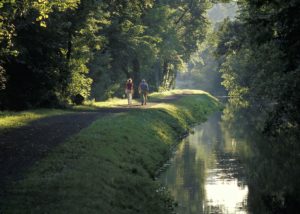For Immediate Release: July 2, 2015
Growing Greener Coalition: Commonwealth Should Enact a Severance Tax on Natural Gas Extraction in Pennsylvania
Urges Increased Investments in Conservation, Recreation, and Preservation Funding
(HARRISBURG, PA) The Pennsylvania Growing Greener Coalition today issued the following statement from Executive Director Andrew Heath in response to recent discussions concerning the enactment of a severance tax on natural gas extraction in Pennsylvania:
“Now that the deadline of June 30 has passed and Governor Wolf has opted to veto the state budget, the Coalition calls on the General Assembly and Administration to enact a fair and reasonable severance tax on natural gas extraction for generating additional state revenues to support various Commonwealth programs and initiatives, as well as investing in the state’s Growing Greener Environmental Stewardship Fund.
“Using revenues from a severance tax to address Commonwealth needs, like education and environmental initiatives makes sense. Given the impact of natural gas development on local communities and the environment, a portion of this revenue should be earmarked to conserve, protect, and restore land, water and wildlife, to preserve farms and historic places, and to provide well-managed parks and recreational areas throughout the state.
“The Governor’s proposed budget contains many elements our Coalition supports; including increasing investments in renewable energy, increased funding for state agencies, such as the Department of Environmental Protection, whose responsibility is to protect and enhance the environment, and reducing the Department of Conservation and Natural Resources dependence on revenue from the Oil and Gas Lease Fund.
“Increasing investments to the Growing Greener program will ensure that these positive steps towards ensuring Pennsylvania’s air, water, land, wildlife, farmland, recreational opportunities, historic preservation, and heritage continue to prosper and grow for generations to come.”
Growing Greener is a bipartisan program established in 1999 under Governor Tom Ridge and later expanded by Governors Schweiker and Rendell. Since its establishment, Growing Greener has created a legacy of success, preserving more than 33,700 acres of Pennsylvania’s family farmland, conserving more than 42,300 acres of threatened open space, adding 26,000 acres to state parks and forests, restoring over 16,000 acres of abandoned mine lands, and thousands of community recreation areas, trails, and greenways.
Moreover, Growing Greener has contributed and leveraged billions of dollars to the Pennsylvania economy by helping to boost tourism, create jobs and generate revenue.
Pennsylvania’s state parks, which are supported in part by Growing Greener funds, generate more than $928 million in local spending and support more than 12,000 local jobs.
In addition, Growing Greener has been a powerful funding source for Pennsylvania’s Heritage Areas. Spending by visitors to these areas generates more than $400 million in sales and contributes at least 6,000 jobs to the Pennsylvania economy.
Other examples of how Growing Greener benefits the economy include:
- Supporting Agriculture – By funding farmland preservation projects, Growing Greener helps sustain Pennsylvania’s agriculture industry. Agriculture produces more than $45 billion annually and provides about one in seven jobs in the state, making it Pennsylvania’s leading industry.
- Increasing Property Values – In Southeastern Pennsylvania alone, preserved open space, which is often supported with Growing Greener funds, increases homeowners’ property values by an average of $10,000 per household.
- Reducing Costs – Growing Greener has funded the clean up of more than 16,000 acres of abandoned mines and in doing so has reduced water treatment costs locally and in downstream communities. Studies show that open space saves local governments and utilities millions of dollars in costs associated with drinking water filtration, air pollution removal and flood control.
- Supporting Forest Products Industry – Growing Greener funds support forest conservation, which in turn helps sustain the resources on which the forest industry depends. This industry has sales in excess of $16 billion annually, a total impact of $27 billion and employs more than 80,000 people.
- Bolstering Tourism Industry – Growing Greener funds have preserved more than 42,300 acres of natural areas and open spaces, many of which provide outdoor recreational opportunities for residents and visitors alike. Outdoor enthusiasts spend more than $5.4 billion in the Commonwealth annually.
